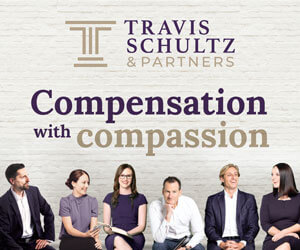…hypothetical observer might reasonably apprehend that the trial judge might be influenced subconsciously by extraneous information
In GetSwift Limited v Webb [2021] FCAFC 26 (5 March 2021) the ultimate issue in the appeal was whether the primary judge should have disqualified himself from hearing the trial in a class action proceeding (Webb proceeding). The primary judge decided not to disqualify himself. The Full Court allowed the appeal.
Relevantly, the appeal raised questions concerning the knowledge to be attributed to the hypothetical observer (the fair-minded lay observer) and the extent to which extraneous information in the mind of a fact-finding judge which is to be discarded might still have a subconscious effect on the decision to be made by that judge.
The issue arose in circumstances where the primary judge was intending to hear a regulatory civil penalty proceeding and a representative proceeding under Pt IVA of the Federal Court Act 1976 (Cth) consecutively. In the Webb proceeding, Mr Webb made allegations against GetSwift Limited (GetSwift) of continuous disclosure contraventions under s674(2) of the Corporations Act 2001 (Cth) (Corporations Act), and of false or misleading statements and misleading and deceptive conduct in contravention of ss1041E and 1041H of the Corporations Act, s12DA of the Australian Securities and Investments Commission Act 2001 (Cth) (ASIC Act) and s18 of Sch 2 to the Competition and Consumer Act 2010 (Cth).
There were also allegations against a director of GetSwift, Mr MacDonald, by reason of knowing involvement in GetSwift’s contraventions. Civil penalty proceedings were also brought by the Australian Securities and Investments Commission (ASIC) against GetSwift and (among others) Mr Macdonald for alleged contraventions of the Corporations Act and the ASIC Act (ASIC proceeding). The allegations raised by ASIC and by Mr Webb were largely the same and the primary judge accepted that he would be dealing with largely the same course of events in the class action as in the ASIC proceeding.
The ASIC proceeding had been heard and judgment was reserved. The primary judge was due to commence hearing the Webb proceeding. The primary judge intended that judgment in each proceeding would be based on (and only based on) the evidence adduced in, and argument advanced in, each proceeding (that is, without regard to the evidence adduced in, and argument advanced in, the other proceeding).
In both cases, it was highly likely that the factual issues would be determined by reference to the documentary evidence that was common to both the Webb and ASIC proceeding and inferences drawn from it. Therefore, the primary judge would have already formed some views about the documentary evidence adduced in the ASIC proceeding if he heard the Webb proceeding (at [10]).
GetSwift submitted that the primary judge erred in failing to conclude that a fair-minded lay observer might reasonably apprehend that the primary judge might not bring an impartial mind to the resolution of the Webb proceeding by reason of his having heard evidence and argument in the ASIC proceeding (at [13]).
Middleton, McKerracher and Jagot JJ summarised the principles applicable to apprehended bias (at [26]-[45]). GetSwift succeeded on the ground that a fair-minded lay observer might reasonably apprehend that the primary judge, consciously or subconsciously, might be influenced by extraneous information from the ASIC proceeding (extraneous information ground) (at [46]-[62]).
However, the Full Court did not accept the ground that a fair-minded lay observer might reasonably apprehend that, in hearing, considering, and forming views about the material in the ASIC proceeding, the primary judge might have prejudged the resolution of issues common to both proceedings (prejudgment ground) (at [63]-[69]).
Dan Star QC is a Senior Counsel at the Victorian Bar, 03 9225 8757 or email danstar@vicbar.com.au. The full version of these judgments can be found at austlii.edu.au.














Share this article